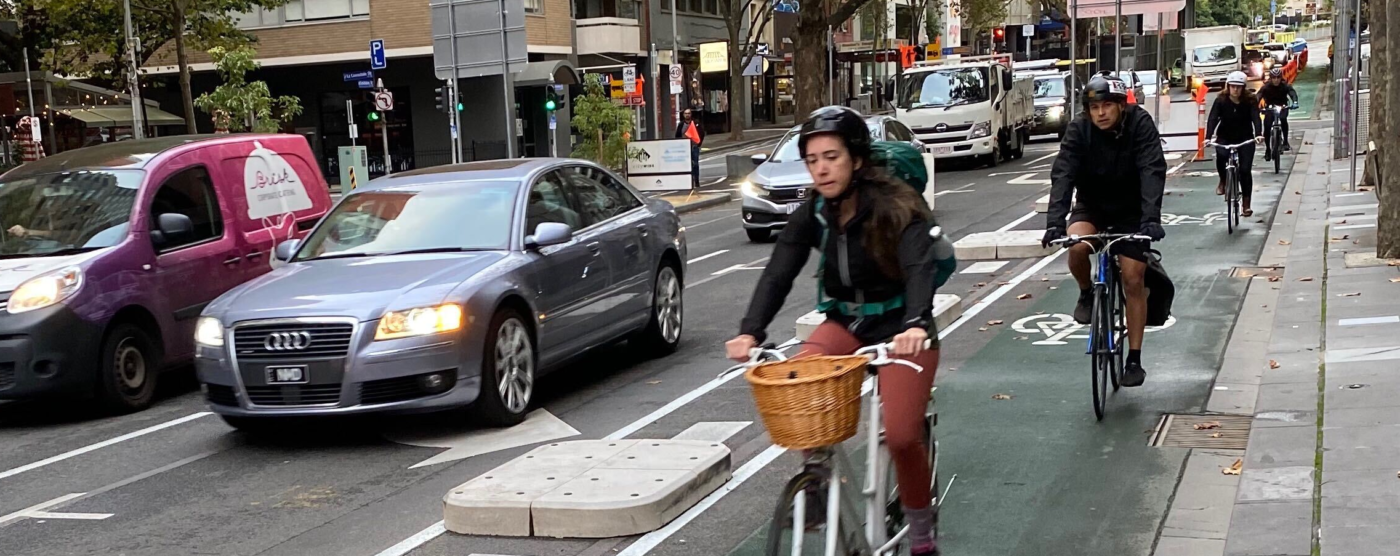The City of Melbourne has ordered a review of its transport policy response to the COVID-19 outbreak.
Councillors voted unanimously for an independent review that would "assess the current levels of transport activity and trends, and recommend cost-effective actions which support city recovery.”
"The COVID-19 pandemic has had devastating health, economic and social impacts on Melbourne’s businesses and communities”, the report by Deputy CEO Alison Leighton says.
"The review would be delivered by an independent transport and economics consultant.
"It would assess in as much detail as possible the current levels of activity and trends, spare capacity, pricing, trip purposes and demographic features of the key transport modes in the city.
"It would compare trends in the City of Melbourne with those in other Australian capital cities and key international comparator cities and investigate current sentiment and attitudes towards each mode including community concerns.”
Councillors are said to be spooked by negative media coverage of recent changes in the CBD that include additional and improved bike lanes, along with a number of enhancements to public spaces.
Melbourne's ever-alert bike riders are no doubt already wondering if this move is yet another feint from sedentary, car-driving interests to re-assert their dominance of the streets.
In a submission to the meeting, Bicycle Network CEO Craig Richards said that the good old days of Melbourne were not really that good. People came in and out of the city to conduct business and lacked an emotional connection with it.
He urged councillors to stay the course and leave a vibrant and inclusive city as their legacy.
Written submissions to the council showed how new bike lanes have helped people return to the city for work, shopping, eating out and going to the football. "Even my 73-year-old mother is considering giving it a try," said one person.
Bicycle Network’s assessment is that any review of recent transport initiatives in Melbourne would generally endorse the direction being taken by the City. It may even call for a rev-up of the activities to meet the city's future needs.
The initiatives have been in place for years and have been underpinned by much research and a strong evidence base.
They have been accelerated recently due to both climate emergency and COVID responses, but fundamentally are still part of the same plan that has transformed the city into a liveable, internationally recognised, economic powerhouse in recent years.
The council report says the review would make recommendations about appropriate transport actions to support the city’s recovery.
"These could include (but are not limited to): changes to pricing and incentives; reallocation of road space; operational changes; marketing and promotion; behaviour change programs; employer travel planning; any other interventions.
"At a high level, the review would compare the costs and benefits of proposed actions in the transport sector with other initiatives which could support the city’s recovery.
"The review would also assess proposed actions against Council’s powers and the delivery of Council’s commitments including adopted strategies and plans such as the Transport Strategy 2030.”
When Melbourne embarked on its current transformation in the mid-eighties with a vision of lively people-filled streets, a large resident population, and a strong focus on prioritising public transport and bikes, there were plenty who said it wouldn’t work, that the city would grind to a halt, that Melburnians would never ride bikes, that the CBD would die.
And the nervous nellies have never ceased to try and turn back the clock: who can forget former Lord Mayor Robert Doyle and his failed promise to reopen Swanston Street and return it to a car sewer.
And while Melbourne’s leadership looked boldly and progressively forward, the media preferred the view through their rear view mirror, to the familiar, comfortable and failing Melbourne of yesteryear.
Change requires conviction, courage and persistence and for decades now the City of Melbourne has held the line.
There is no reason for it to wilt now.
If you'd like to let the City of Melbourne know how much you enjoy riding the new bike lanes, you can complete an online survey and give feedback.
have your sayBecome our friend
Find out more about Bicycle Network and support us in making it easier for people to ride bikes.


